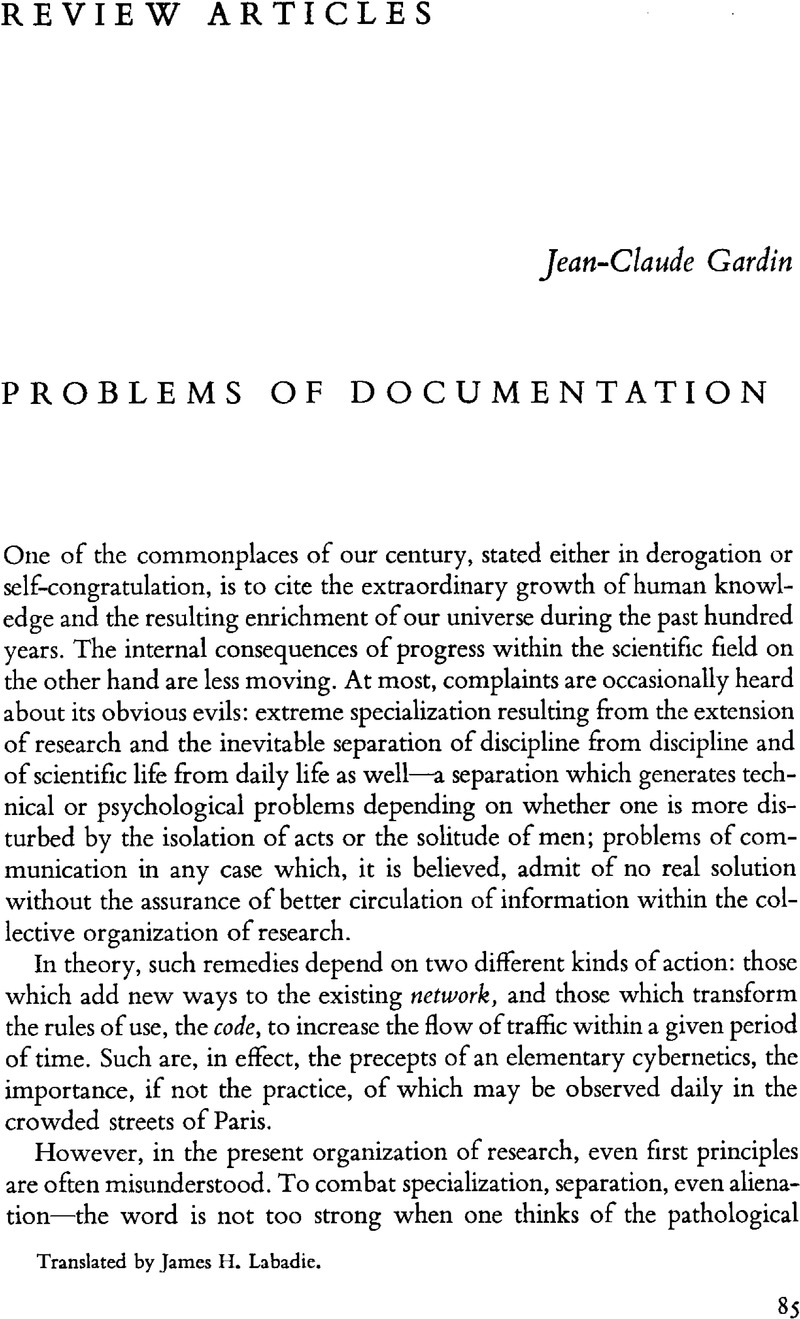No CrossRef data available.
Article contents
Problems of Documentation
Published online by Cambridge University Press: 03 July 2024
Abstract

- Type
- Review Articles
- Information
- Copyright
- Copyright © 1955 Fédération Internationale des Sociétés de Philosophie / International Federation of Philosophical Societies (FISP)
References
1. This division is too systematic, for catalogues often lead to a bibliography, and vice versa; it is really less a question of two different sorts of tools than of two complementary functions of one diverse set. The exposé will nevertheless be more clear if this artificial but concrete aspect of the opposition is kept in mind.
2. It will be objected that he is not obliged to do so. But he is, in the present state of affairs which reflects the opinion of many masters; a copious collection of these personal file cards, begun early and patiently added to throughout a lifetime, is the secret of success. If "success" were given a somewhat broader meaning, this individual collection might not be so highly recommended; but this is said to be another question.
3. The most ordinary of these, unfortunately, is the presentation of documents in simple chronological order, where the chronology itself is based on an individual, and still question able, interpretation of the documents themselves.
4. The example of Marcel Mauss distributing his file cards to his elementary students of ethnology is often cited but seldom imitated.
5. The "but" here is an answer to the opposite tendencies which characterize the documen tation of the isolated scholar: mobile as long as it remains private, it becomes public only when fixed.
6. "More precisely," because whenever universal psychological opposition is no longer backed by an outworn logic, it cites economic factors which are in fact the result, and not the cause, of the opposition. This is the classic phenomenon of resistance to investment in an econ omy which is neither liberal nor directed, but merely protected against the hazards of growth.
7. Coded, when it seems convenient to transcribe in numerical codes the successive values of a particular characteristic of the material catalogued, e.g., code of vase forms, code of orna ments, code of ceramic techniques, etc.




